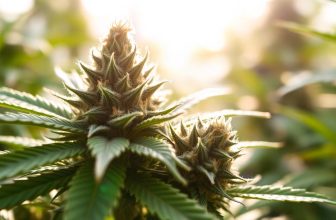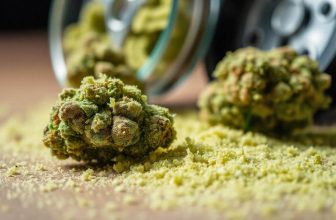The U.S. National Collegiate Athletic Association (NCAA ) recently took the historic step of removing cannabis from its list of banned substances. This reform marks a significant shift in the way the organization deals with cannabis use among its athletes, now favoring an approach focused on health and well-being rather than punishment.
Paradigm shift: cannabis is not a doping agent
After nearly five months of discussion, the NCAA Division I Council has adopted a new cannabis policy. This is another step forward for cannabis in the USA, and one that has just been declassified by the Biden administration.
The main argument put forward is that cannabis is not a doping product and should be treated in the same way as alcohol. The change is in line with World Anti-Doping Agency (WADA) rules, which also distinguish between performance-enhancing and non-performance-enhancing substances.
The new policy will be applied retroactively, cancelling all outstanding penalties related to violations involving cannabis. This means that many athletes will be able to regain their status and participate in championships without the burden of past sanctions.
Motivations behind this reform
Josh Whitman, Chairman of the Board, emphasized that the NCAA ‘s doping testing program is first and foremost about ensuring the integrity of competition. In his view, cannabis-based products offer no competitive advantage. The emphasis is therefore on policies that promote the health and well-being of student-athletes rather than punitive mechanisms.
In a message posted on social networks, the NCAA indicated that its members would now focus on strategies to reduce the risks associated with problematic cannabis use. This approach reflects an increased willingness to support athletes in their healthy lifestyle choices.
Background and implications for American sport
- In 2020, the NFL and its union agreed to review testing policies for various substances, including cannabis.
- TheUFC has also adapted its regulations in line with WADA guidance, notably during events in California.
These developments indicate a general trend towards greater tolerance of cannabis in the sporting world, influenced by various state legalizations in the USA.
The adoption of this reform by the NCAA comes after preliminary recommendations made last June by the Committee on Competitive Safeguards and Medical Aspects of Sport. Many elected officials and representatives, such as the co-chairman of the Congressional Cannabis Caucus, Earl Blumenauer, hailed this decision as a sign that American mentalities are changing in the face of the “war on drugs” waged for 50 years.
A significant but long-awaited transformation
The removal of cannabis from the NCAA's list of banned substances symbolizes a necessary and long-awaited change in approach. By focusing its policies on athlete health and adopting harm reduction strategies, the NCAA is demonstrating a better understanding of contemporary issues related to cannabis use. This move echoes a global shift within many sports organizations, reinforcing the idea that priority should be given to athletes' well-being rather than repression.
Follow us on 
Join the Community
Don't miss any news with our newsletter





